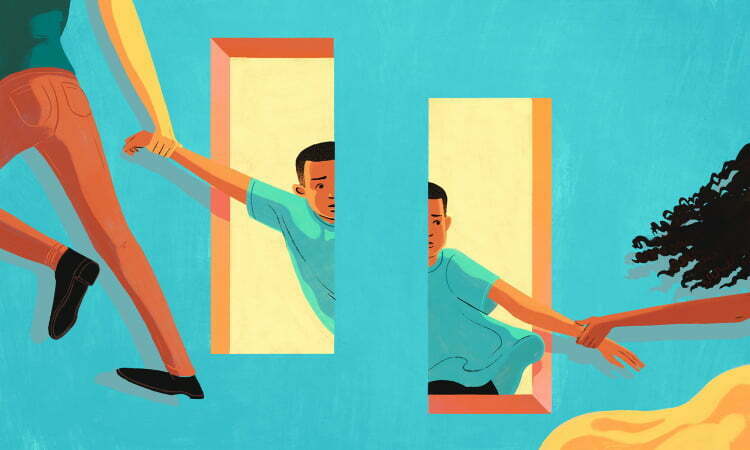OPINION: SOUTH AFRICA IS FAILING THE RIGHTS OF CHILDREN TO EDUCATION AND HEALTH
OPINION: SOUTH AFRICA IS FAILING THE RIGHTS OF CHILDREN TO EDUCATION AND HEALTH
Share
This article first appeared on The Conversation.
Is South Africa frequently denying youngsters their right to get admission to education in addition to fitness care on the grounds of petty bureaucracy or a misinterpretation of you? S. A . ‘s laws and global obligations?

The solution is yes.
U.S. Places obstacles on kids getting admission to schooling and affordable health care. This is particularly true of migrant kids. These limitations are, in my view, unconstitutional and in violation of South Africa’s international responsibilities. For example, South Africa knows the International Covenant on Economic, Social, and Cultural Rights. In the interpretation of this conference, the United Nations Committee on Economic, Social, and Cultural Rights has emphasized that:
All youngsters inside a kingdom, which includes undocumented fame, have a proper education and get entry to adequate food and less expensive fitness care.
However, South Africa isn’t living up to this promise.
What’s clear is that South Africa’s current faculty admission coverage has a severe impact on the entry to the basic training of both children who are South African citizens and people who are overseas nationals or stateless.
The demanding situations for folks who are not South African residents and don’t have the desired allows are compounded using section 39 of the Immigration Act thirteen of 2002. This states that a “learning group” might not provide “schooling or education” to an “illegal foreigner.” Principals of colleges that enroll a baby who is an “unlawful foreigner” may be charged and may face penalties.
Children who are not South African residents regularly also conflict to get the right of entry to low-cost fitness care through what’s been referred to as “clinical xenophobia.”
A current Constitutional Court ruling gives some desire that the necessities of a birth certificate and looking for kids to enroll in college will finally be cozy. However, litigation remains ongoing, and as with access to affordable health care, there’s regularly a discrepancy between what the regulation offers and the actual situation on the ground.
DENIAL OF RIGHTS
On 10 December 2018, the Grahamstown High Court gave an order disregarding an urgent application with the aid of the Centre for Child Law that 37 children must be admitted to a public faculty pending the very last willpower of a case instituted using the Centre in 2017, in which the candidates, amongst others, requested an order that:
No learner can be excluded from a public school because they do not have an identification range, permit, or passport.
The 37 youngsters had been some of the many children whose guardians have not managed to ease the office work needed to be allowed to register in a college below the 1998 Admission Policy for Ordinary Public Schools.
On 15 February 2019, the Constitutional Court granted a leave of enchantment against the High Court order. It overturned it, ordering that the youngsters be admitted and enrolled in faculty using 1 March. However, this order does not, in the end, decide the difficulty of requirements for enrolling in school because the case instituted in 2017 is still pending before the High Court.
The proper health care is provided for in article 27 of the Constitution. The National Health Act 61 of 2003 presents free healthcare at public centers for children under six years old unless a child is included in using private health insurance.
According to the Uniform Patient Fee Schedule, all non-South African residents – except those with everlasting or temporary housing and residents of the Southern African Development Community member states who “enter the (the republic) illegally” – are labeled as full-paying patients. Children without the required allow who are over six years old, lack medical insurance, and who are not from a Southern African Development Community member state lack access to subsidized health care.
INTERNATIONAL OBLIGATIONS
The Global Compact for Safe, Orderly, and Regular Migration was adopted in December 2018 with South Africa’s guide. Among other matters, the global compact calls on states to undertake toddler-sensitive migration policies. It also promotes international legal responsibilities regarding the rights of the kid and upholds the precept of the kid’s exceptional interests.
The precept of the kid’s friendly interest changed into the first set out in an international treaty 30 years ago within the United Nations Convention on the Rights of the Child. It was reiterated within the African Charter on the Rights and Welfare of the Child. South Africa is a birthday celebration for each of these treaties. Also, the South African Constitution presents:
an infant’s social interests are paramount in every counting number regarding the kid.
A baby is defined as all of us under the age of 18.
The right-holder within the Bill of Rights in the Constitution is, with few exceptions, “every person.” This includes not only South African residents but also anyone who is inside the country. Most rights aren’t absolute and can be constrained underneath Phase 36
In general, utility phrases to the volume that the predicament is affordable and justifiable in an open and democratic society based on human dignity, equality, and freedom.
The Immigration Act is a “law of fashionable application.” However, the child’s best interest is “of paramount importance.”
In my view, youngsters’ rights to primary education and less costly health care in South Africa can’t be constrained, and “each person” should be examined to include every child, irrespective of their immigration reputation. The situation is even more apparent when it comes to getting admission to fitness care as there are no limitations inside u — S. A . ‘s legal guidelines. The Uniform Patient Fee Schedule must be revised to offer subsidized fitness care for all children whose guardians can not afford medical health insurance.



















